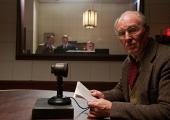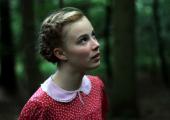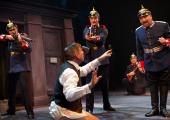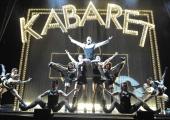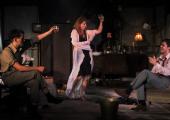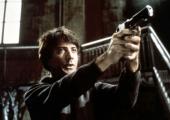Company of Heroes 2

A strategy game that wants you to think and feel – and manages both
Fusing the intensity of first-person shooters like the Call of Duty series with top-down strategy games doesn't immediately seem a good fit. First-person shooters work because you respond viscerally to bullets flying past your face and the fear of the battlefield as you sprint through mayhem, dodging and weaving. Strategy games, even the realtime modern videogame versions, rely on a cerebral strategising – often sacrificing men as pawns in a broader scheme. Yet fusing these two ideas is exactly what Company of Heroes 2 tries to do and mostly succeeds at.

